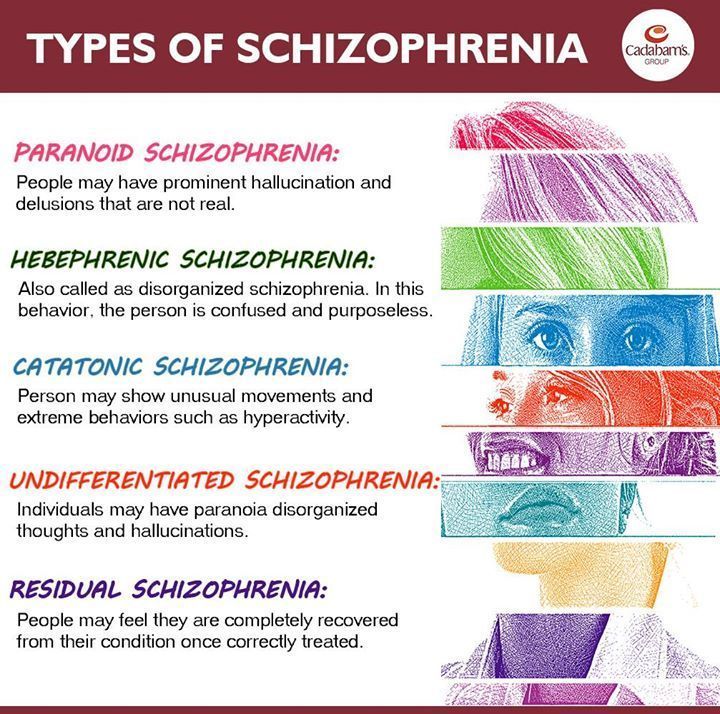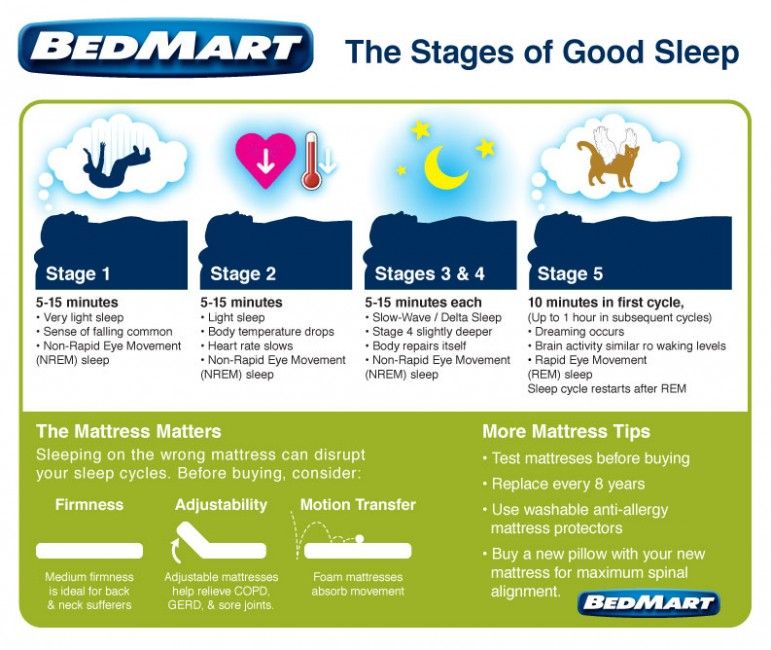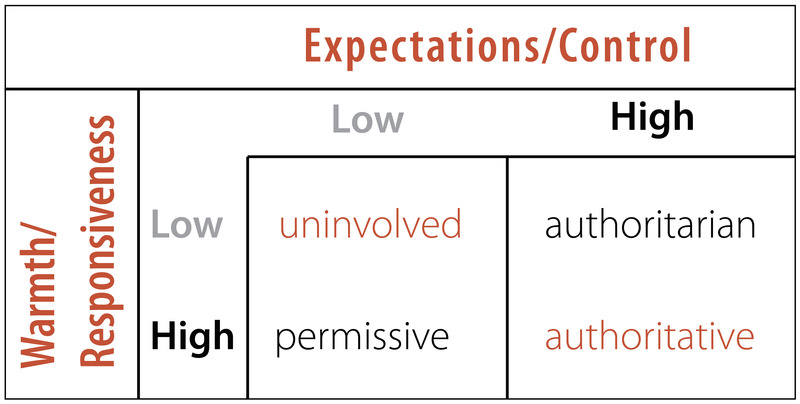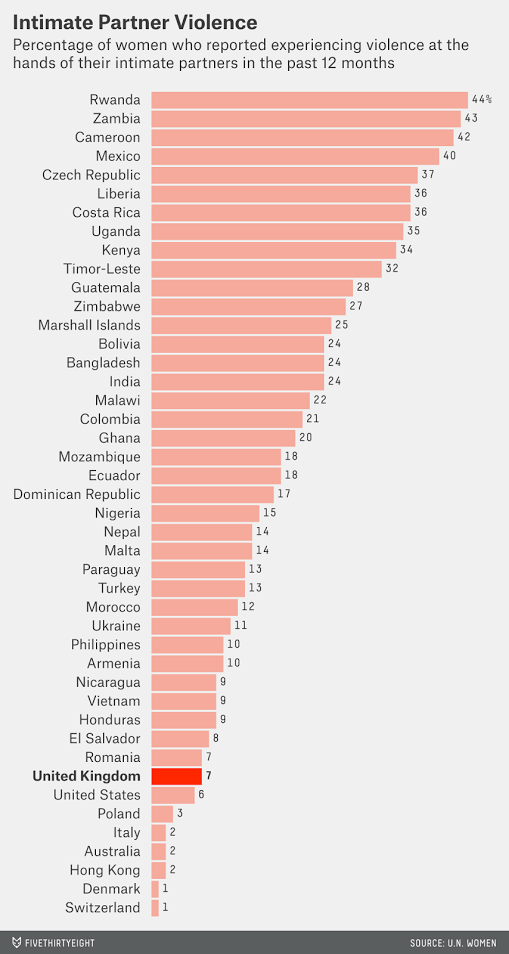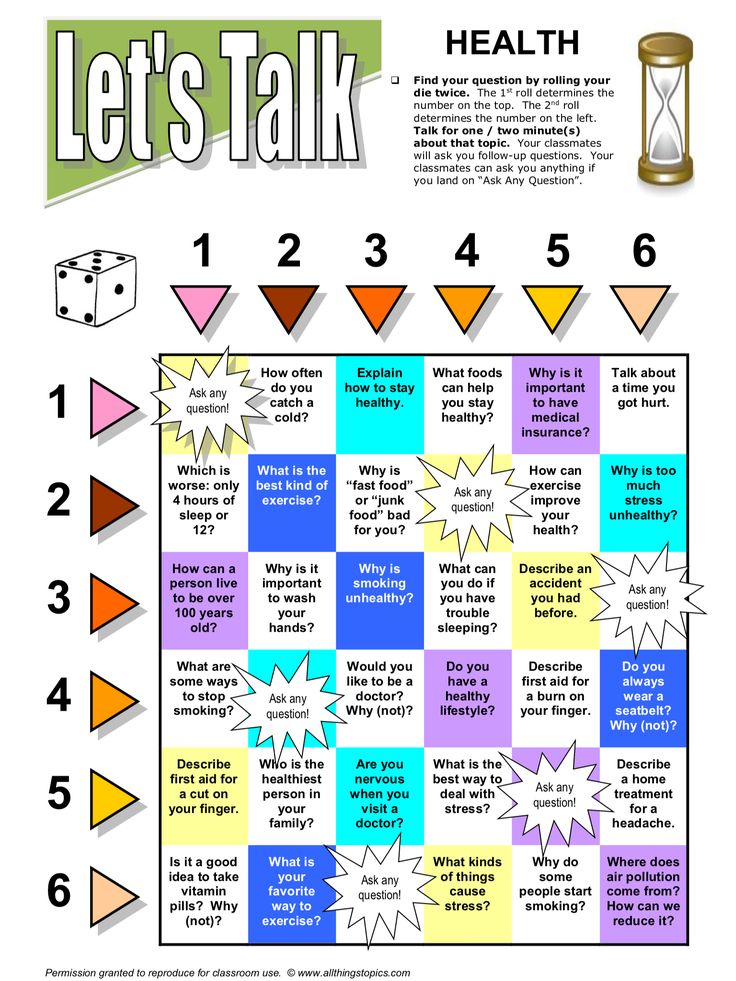Narcissist and their mothers
Narcissistic Men and Their Mothers
Source: Wikimedia Commons
Narcissism is a genuine problem in today's society.* People largely make choices on the basis of their own interests and well being. Doing so makes sense in some cases but not others. Choosing a career on the basis of your preferences and likes and dislikes is much better than choosing a career on the basis of your parents' preferences and likes and dislikes. But there are also cases where narcissism is not backed up by any good reasons. Choosing to go to a movie rather than paying your grandmother who is in hospice care one last visit is selfish and ungrounded.
Although people of all genders become increasingly more narcissistic, there is a form of narcissism that seems to afflict men more than women. This is a form of narcissism that stems from a very close and unhealthy mother-son attachment relationship. Data indicate that men who were raised by narcissistic mothers have a slightly greater risk of becoming narcissistic themselves than men raised by non-narcissistic mothers.
This may not come as a surprise. We often end up being just like the parents we once despised and swore we would never become. But in the case of the sons of narcissistic mothers, this tendency is even stronger—although there are also many cases in which the child of a narcissistic mother becomes co-dependent rather than truly narcissistic.
The narcissistic mother will often start out by idealizing her son and putting him on a pedestal—almost like a display object. This will bolster the young child's ego. But unless he continues to please his mother, which is unlikely in adolescence, the mother begins to resent him, which in turn creates resentment in the young boy. The only way he can avoid feeling emotionally castrated is by building up his ego to an even greater extent.
This creates young men who always put themselves first, who feel entitled and who are dismissive of others. Their feeling of grandiosity is a facade that covers deep insecurity and existential angst.
The reason that sons of narcissistic mothers are more likely than daughters to become narcissistic themselves is that mother-son relationships are fundamentally different from mother-daughter relationships. As several prominent authors have argued, raising a boy as a woman is not the same as raising a girl. There comes a time when the boy will come across to the mother as a mysterious and dangerous testosterone-filled creature that almost appears to belong to an entirely different species. It is this failure to identify with the adolescent male that makes the relationship more likely to go sour, forcing the boy to find his own path in life and build up a grandiose appearance that isn't easily threatened by the mother's huge ego.
Of course, a lot of the research done on mother-son relationships were completed at a time when the mother was more likely than the father to be the primary caregiver. Perhaps the persistent increase in narcissism in our society is in part due to the fact that the father often plays a greater role in his children's lives than a couple of decades ago. Narcissistic fathers then are likely to foster narcissistic children as well.
Perhaps the persistent increase in narcissism in our society is in part due to the fact that the father often plays a greater role in his children's lives than a couple of decades ago. Narcissistic fathers then are likely to foster narcissistic children as well.
Can we break the trend and teach people to become more altruistic? If narcissism is grounded in a childhood attachment patterns, this is going to be difficult. But there may be ways to teach emotional intelligence to children outside of the home, for instance, as an obligatory component of elementary school. We teach children math, science and English in order to develop their brains. We include physical education to ensure healthy bodies. It would only be natural to teach children to become emotionally intelligent adults as well.
Source: Oxford University Press, used with permission.
* By 'narcissism' I don't mean just Narcissistic Personality Disorder, which is a disorder in DSM IV and V, but also milder forms of narcissism.
Sons of Narcissistic Mothers | Psychology Today
Source: Victoria Borodinov/Pexels
All children of narcissists suffer. Sons of narcissistic mothers suffer damage to their autonomy, self-worth, and future relationships with women.
Narcissists lack empathy and the ability to nurture their children. They don’t see them as individuals, but as extensions of themselves. Their children’s feelings and needs are neglected and criticized, while their own take precedence. Narcissists feel entitled and insist on getting their way. They exact compliance through control, manipulation, guilt, and shame. It’s "their way or the highway,” and if you don’t oblige, they punish you with attacks, coldness, or withholding. Insecurity drives their insatiable, unrealistic needs for high regard and admiration. They take offense easily, triggering contempt and rage. Because they lack boundaries, they project—they shame and blame others for their own emotional discomfort, which they can’t tolerate.
Dynamics between Sons and Narcissistic Mothers
Narcissism varies in degree and kind and with each individual’s personality and values. There are narcissistic mothers who are disinterested in their children; others who are over-involved. Some act aggressive, while others act caring or seductive. The following are some common patterns, though your experience may differ.
Neglect
Narcissistic mothers who feel burdened by motherhood neglect their children, yet shame and criticize them—sometimes for being too needy or childlike. They are needy themselves and can’t bear their child’s needs. They might demand that their young son “be a man,” or favor one child and demonstrably ignore or belittle another.
Enmeshment
Instead of neglect, other narcissistic mothers are enmeshed. They use their children for their narcissistic supply. Although a mother may appear independent, she may be emotionally needy and foster mutual dependency with her son through adoring and controlling behavior. She might depend on her son to support her emotionally, listen to her, be a companion, or attend to her physical needs and responsibilities. When he’s an adult, she might rely on him to make decisions and manage her affairs and finances.
She might depend on her son to support her emotionally, listen to her, be a companion, or attend to her physical needs and responsibilities. When he’s an adult, she might rely on him to make decisions and manage her affairs and finances.
Above all, she uses and exploits her son to supply her with attention, admiration, and to fill her wants and needs. She makes him feel loved, important, and valued, reinforcing his dependency. However, it’s only at her pleasure. Hence, her over-involvement with her son can camouflage her toxic parenting. There’s usually a high price to pay for his attempts at autonomy. Through her manipulation with anger, shame, guilt, self-pity, and/or martyrdom, he learns to put her wishes and needs first and feels obligated to do so.
Idealization and Criticism
Many narcissistic mothers idealize their young son. They build his confidence and sense of importance. As he matures and challenges her control, she disparages his emerging individuality and tries to correct and change him. To boost her ego, she may brag about her son to her friends, but is critical at home. In response, he may rebel and incur her rage or try to please her to be accepted. His fall from grace can be confusing and traumatic. It’s exacerbated if another child is born. He loses his specialness, and sibling rivalry can be extreme.
To boost her ego, she may brag about her son to her friends, but is critical at home. In response, he may rebel and incur her rage or try to please her to be accepted. His fall from grace can be confusing and traumatic. It’s exacerbated if another child is born. He loses his specialness, and sibling rivalry can be extreme.
Triangulation
Marital relations for a narcissist lack intimacy. Therefore, a husband may avoid a narcissistic woman with work. To compensate, and because she’s emotionally needy, she will “triangulate” (bring in a third), be it work, a lover, an addiction, or her children. She may use her son as a confidant or companion. Children are ideal subjects because they idealize their parents and can easily be controlled.
It’s worse for a son if his father is absent, rages, is violent, or has a mental or drug problem. Then to survive, the son may seek comfort in addiction or further bond with his mother.
Seduction and "Oedipal" issues
In some cases where the mother is seductive and sexualizes her relationship with her son, it can be more damaging. Even without molestation, emotional incest may occur when mothers behave inappropriately with their sons in regard to language, appearance, and manner.1 To a young boy, she’s titillating and exciting. This over-stimulates a possible (but often unconscious) attraction toward his mother. Ideally, a son becomes closer and identifies with his father as a masculine role model. The potential for this is exacerbated where the father is absent, or if a divorced mother denigrates and alienates her ex-husband.2
Even without molestation, emotional incest may occur when mothers behave inappropriately with their sons in regard to language, appearance, and manner.1 To a young boy, she’s titillating and exciting. This over-stimulates a possible (but often unconscious) attraction toward his mother. Ideally, a son becomes closer and identifies with his father as a masculine role model. The potential for this is exacerbated where the father is absent, or if a divorced mother denigrates and alienates her ex-husband.2
Left unresolved, some sons believe (whether accurately or not) that their mother loves them more than her husband. Instead of surrendering defeat, he’s inflated and victorious over his father. This dynamic damages the son’s adult intimate relationships.3 It may also impair his self-concept as a man since he sees his father, who should be a positive role model, as failing.4 A father's nurturing relationship with his son helps them bond and for the son resolve inner conflicts. 5
5
Envy and Control
Just as daughters of narcissistic mothers experience their mother’s envy and competition, a narcissistic mother may be jealous of her son’s girlfriends and compete with his wife. No one will be good enough, because no one will measure up to her inflated self-image and standards. She must remain number one in his life. She may try to control and undermine his intimate relationships, criticize or disrespect his partner, or do so subtly with innuendo and manipulation. (See the movie Queen Bee.) Her son will feel hopelessly guilt-ridden and caught in the middle, trying to avoid hurting and angering his mother and partner (who may also be a narcissist or otherwise mentally unstable.) He feels guilty, is unaware of appropriate boundaries and unable to set them.
The Damage to Sons of Narcissistic Mothers
Like sons of narcissistic fathers, sons of narcissistic mothers don’t feel loved for who they are, but only for what they can do for their parent’s approval. Because appearances are all important, their children must look and act in ways that reflect positively on them. Love, if given at all, is conditional. It’s not based on understanding, appreciating, and accepting their son’s unique, true self. The son’s value depends on the extent to which he aggrandizes his parents’ ideals and ego. This may include pressuring him into a parent’s favored profession and to achieve success or the lifestyle his parents want.
Because appearances are all important, their children must look and act in ways that reflect positively on them. Love, if given at all, is conditional. It’s not based on understanding, appreciating, and accepting their son’s unique, true self. The son’s value depends on the extent to which he aggrandizes his parents’ ideals and ego. This may include pressuring him into a parent’s favored profession and to achieve success or the lifestyle his parents want.
Codependency
Whether or not sons have worldly success, they risk growing up insecure and codependent. Their individual identity has never been supported. Their self-worth and self-esteem have been undermined by verbal abuse and lack of love for their authentic self. They learned to accommodate their mother by suppressing their needs, feelings, and wants. This denial handicaps them in adult relationships. They have difficulty identifying and expressing their needs and feelings. They may self-sacrifice and feel undeserving without people-pleasing. Where the father was unable to stand up to his wife to protect children from her control and jabs, he fails to role model setting boundaries. As a result, a son can feel used, resentful, and exploited by women.
Where the father was unable to stand up to his wife to protect children from her control and jabs, he fails to role model setting boundaries. As a result, a son can feel used, resentful, and exploited by women.
Intimacy issues
When a son feels unsafe to express feelings and needs to his mother, it feels unsafe in adult intimate relationships, as well. Having been manipulated and emotionally abandoned, he fears being judged and/or abandoned by his partner. Additionally, having been enmeshed with his mother, he fears being engulfed and controlled by an intimate partner. Thus, he’ll avoid intimacy, prompting his partner to demand more closeness, which escalates his apprehension and defenses.
Resentment
From feeling controlled and/or exploited, the son may harbor deep dislike toward his mother, even if he remains close. This often extends to other women. Generally, he will react to women with compliance, resistance, or anger. Some men will be aggressive and distrust women.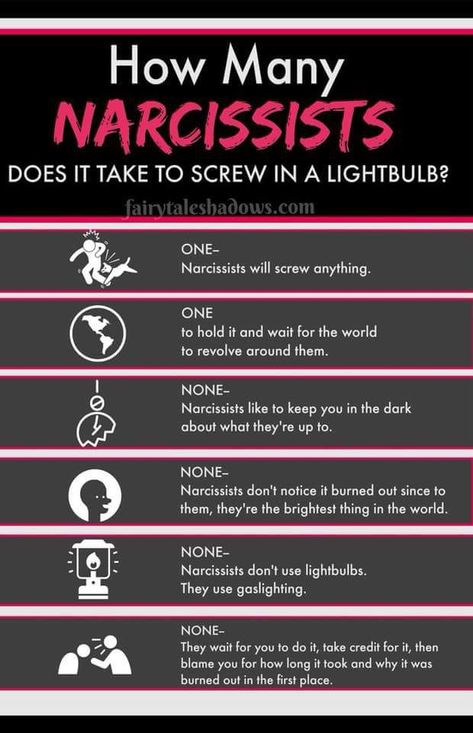 Other men have learned to be manipulative or be passive-aggressive. They overly accommodate, lie, or passively refuse simple requests from their partner as if they were their mother’s demands. Their hostile behavior may eventually make their spouse act like their mother! Resentment and intimacy fears might drive them to be dishonest or unfaithful, especially if their father was.
Other men have learned to be manipulative or be passive-aggressive. They overly accommodate, lie, or passively refuse simple requests from their partner as if they were their mother’s demands. Their hostile behavior may eventually make their spouse act like their mother! Resentment and intimacy fears might drive them to be dishonest or unfaithful, especially if their father was.
Repetition
Some sons of narcissists may develop a narcissistic personality disorder. Sons of narcissistic mothers have higher rates of narcissism. This may be because she’s more likely to idealize and aggrandize him rather than compete, as she would with a daughter.
Other sons may repeat their maternal relationship with women who are demanding, controlling, or abusive. They may partner with an older woman, a narcissist, addict, or someone with a borderline personality disorder or other mental problems. They may become caretakers to their partner, just as they were to their mother, and find it hard to leave.
To heal, a son must come to terms with his mother’s disordered personality, his anger toward her, and his grief. Eventually, he needs to accept his parents with compassion, whether or not he likes or loves them. At the same time, he must recognize that he’s worthy of love, learn to set boundaries with his mother and others, and to value and express his needs and feelings.
Why narcissistic mothers are dangerous and how they ruin the lives of their daughters
Reading books about the relationship between mothers and daughters, Dr. Caryl McBride cried every time. She could not understand why she could not remember the feelings of affection and love in her childhood, and she really wanted to find an explanation for this. Thus was born the book Good Enough, in which McBride, based on real stories, explores (for the first time!) the problem of maternal narcissism and its impact on the lives of daughters.
“Both boys and girls suffer from the disruption of emotional bonds when one of the parents is a narcissist. However, the mother also serves as a role model for the growing daughter,” says Caryl McBride.
However, the mother also serves as a role model for the growing daughter,” says Caryl McBride.
The narcissist mother pushes her daughter to respond to the world around her in the way she herself does, and not in the way that suits the child. The girl constantly tries to guess the reaction of her mother and adapts to her in order to earn approval and love. Of course, she does not understand that such behavior serves only the interests of the mother.
“Unconditional acceptance of a child as a unique individual is a necessary condition for a girl to grow into a confident woman. If you had a narcissistic mother, you were deprived of that,” McBride writes. The concept of love in daughters of narcissistic mothers is distorted. In childhood, they try to earn the approval of their mother. Their definition of love is to please another without expecting anything in return. This negatively affects the girls' future romantic relationships.
Moreover, the patterns and narcissistic traits learned in childhood, grown-up girls, becoming mothers, can be transferred to their daughters and reward the next generation of women of their kind with narcissistic traits.
9 characteristics of narcissistic mothers
In everyday life, arrogant people who are obsessed with themselves and their desires are called narcissists. In psychology, narcissism is a spectrum disorder that can manifest itself in many ways, from a few character traits to a full blown narcissistic personality disorder. According to the American Psychiatric Association, approximately one and a half million women in the United States suffer from narcissistic personality disorder.
The Diagnostic and Statistical Handbook of Mental Disorders identifies nine characteristics of narcissistic personalities.
1. Have an inflated sense of self-importance , may exaggerate their achievements and talents, or expect to be recognized as superior in any situation. For example, a mother speaks only about herself, does not ask her daughter questions, is not going to listen to her, but only shares her news and feelings.
2. Constantly fantasize about limitless success, power, incredible achievement, beauty, or ideal love. For example, a mother earns money by cleaning houses and is sure that her famous clients will help her become famous herself.
For example, a mother earns money by cleaning houses and is sure that her famous clients will help her become famous herself.
3. They believe that they are special and unique , so they can only be understood by people who are just as special or have a high status. The rest are despised. For example, a mother takes the family to a restaurant and treats the waiters like servants.
4. They crave excessive admiration. Example: A mother demands to be thanked, praised and complimented for everything she has ever done for you.
5. They think that everyone owes them. These are unrealistic expectations that other people will treat them especially well or automatically meet their expectations. For example, a mother is sure that she is too important a person to stand in line.
6. Exploit others , that is, they use others to achieve their own goals. For example, a mother is friends only with those who can be useful to her.
7. Demonstrate a lack of empathy : unwilling to notice other people's needs or cherish their feelings. For example, a mother constantly points out her daughter's "mistakes", criticizes and humiliates her.
Demonstrate a lack of empathy : unwilling to notice other people's needs or cherish their feelings. For example, a mother constantly points out her daughter's "mistakes", criticizes and humiliates her.
8. Often envious of others or feel that they are the object of envy of others. For example, a mother claims that she has no girlfriends because women are jealous of her.
9. Demonstrate arrogance, arrogance and attitude. For example, a mother thinks that her children are too good and should not play with peers from less wealthy families.
The degree of narcissism can vary. McBride emphasizes that even if your mother doesn't have all nine traits of people with severe narcissistic personality disorder, her narcissism still hurt you. If so, then three destructive mindsets have haunted you throughout your life:
- Something is wrong with me.
- My value is in what I do, not in who I am.
- It's impossible to love me.

10 relationship problems with narcissistic mothers
In her research on maternal narcissism, McBride identified ten common relationship problems between mothers with narcissistic traits and daughters. It doesn't matter if you have experienced all the features in your life or only some of them. This only indicates how clearly narcissism is expressed in the behavior of your mother.
1. You notice that you are constantly trying to win your mother's love, attention, and approval, but fail to please her. Narcissistic mothers are critical and do not accept their daughters as they are.
2. The mother emphasizes that what matters to her is how something looks, and not how you feel about it. Your emotions don't matter to her. She consoles you not with hugs, but with buying new clothes.
3. Your mother is jealous of you: because of your appearance, material well-being, achievements, education, and even because of your relationship with your father.
4. Narcissistic mothers control the interests and activities of their children and do not support their daughters in what they really want.
5. Everything in the family always revolves around the mother. Narcissists do not tolerate rejection and want everyone to obey their wishes.
6. The mother is unable to show empathy. The feelings of a daughter growing up next to her are not taken seriously, and she does not feel her own importance. Regardless of age, such daughters may withdraw, stop talking about themselves, or even notice their feelings.
7. The mother cannot cope with her own emotions. She "stiffens" or "disappears" when it comes to feelings. She does not allow herself or her daughter to express what is in her soul - their relationship is doomed to remain superficial, there is no deep connection in them.
8. Mother often criticizes and condemns. She does it because she doesn't like herself. In this way, she raises her daughters to be extremely sensitive to other people's opinions and makes them constantly feel like they are not good enough.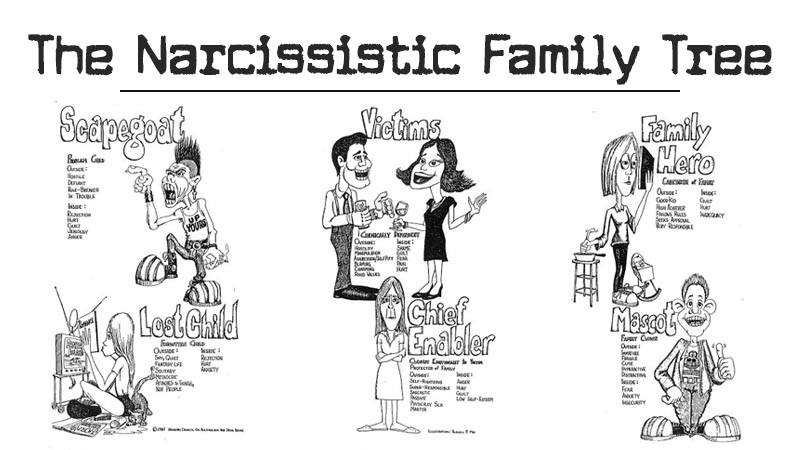
9. Your mother treats you like a friend, not like a daughter. In a healthy relationship, the mother plays the role of an adult and takes care of the child. Mothers with narcissistic traits did not receive proper care from their parents in childhood, therefore, emotionally, they resemble children who constantly need support.
They often involve their little daughters in the adult world, for example by sharing difficulties with their husband. In this case, the daughter begins to feel loneliness and danger - she does not have a parent to rely on. She feels guilty about not being able to solve her mother's problems and internalizes the "I'm not good enough" mentality.
10. There are no personal boundaries in your communication with your mother. Emotional separation is an essential part of psychological growth, but the narcissistic mother does not allow her daughter to become a separate person. In family life, she has no boundaries, there is nothing personal. For a narcissistic mother, a child is an extension of herself: she can talk to her daughter on the most inappropriate topics, she has the right to interfere in everything and share information with anyone.
For a narcissistic mother, a child is an extension of herself: she can talk to her daughter on the most inappropriate topics, she has the right to interfere in everything and share information with anyone.
How narcissism manifests itself: an absorbing and ignoring mother
A mother can only pass on knowledge, confidence and self-love to her daughter if she herself has these skills. Moreover, for this to be successful, a woman must build a deep and balanced relationship with her daughter.
Narcissism is the opposite of balance. In the families of narcissistic mothers, everything is taken to the extreme. “Staying true to intergenerational twisted love, most narcissistic mothers place either too much emphasis on raising their daughters (absorbing mother) or very little (ignoring mother),” McBride writes.
The absorbing mother dominates her daughter with care, dominates every aspect of her life and keeps them under control
She makes all decisions for her daughter and tells her what to wear, how to behave, what to say, think and feel correctly.
Such mothers often seem wonderful. They are involved in the life of their daughters, doing something for them, for them and together with them, so others perceive them as interested parents. Alas, the consequences of such behavior are sad. As a result, daughters have low self-esteem, they often feel their own worthlessness.
An ignoring mother, on the contrary, does not pay enough attention to her child. She does not take or deny the feelings of children seriously. Excluding especially difficult cases, such parents provide the child financially: their own room, food, clothes, but they refuse their daughters upbringing, emotional support and empathy. Therefore, they feel invisible and begin to think that as individuals they do not matter.
McBride emphasizes that the two styles described are not mutually exclusive. The narcissistic mother can switch from absorbing to ignoring and back again. In addition, she can choose the type of behavior in relation to her daughters: with one daughter, she can be an absorbing mother, and with another, an ignoring one.
Perfectionism and Sabotage: How Children React to Mother's Narcissism
When two daughters are raised by the same narcissistic mother, they often take on very different roles. Both girls think they are loved for what they do, but behave differently. One sister, as it were, says to the narcissistic mother: “OK, I will show you what I am capable of and what I am worthy of.” She becomes a perfectionist who constantly strives to achieve more. Another sister, having adopted the same attitude, begins to believe that everything is meaningless and she will not achieve anything anyway. She goes into passivity and self-sabotage.
As adults, successful daughters seem like superheroes, but their accomplishments and high performance do not bring satisfaction or inner comfort.
They are constantly struggling with a sense of failure and never notice how much has already been done. They are constantly looking for what else they can do to prove their worth, and often work themselves up to burnout and chronic fatigue syndrome. There are no problems if you are successful, doing what you love, while praising yourself and taking care of yourself.
There are no problems if you are successful, doing what you love, while praising yourself and taking care of yourself.
Alas, many super-successful daughters, suffering from workaholism, cannot slow down, which leads them to health problems. Here's proof that I can't be who you want me to be!" They give up easily, try to numb the pain with addictions, are unable to break free from self-destructive habits, and refuse to realize their potential.
As they get older, these daughters start looking for a replacement mother, someone who can take care of them. They are smart, talented and capable of many things, but they do not believe in themselves. So they find alternative unhealthy ways to get other people to take care of themselves: huddling in the basement of an aunt's house, ending up in jail, or living on welfare or unemployment benefits.
How to overcome childhood trauma
The third part of his book McBride devotes entirely to the process of recovery. She provides many exercises that can help you accept and live through traumatic experiences, and also recommends contacting a psychotherapist. The specific steps to recovery for the daughters of narcissistic mothers are:
The specific steps to recovery for the daughters of narcissistic mothers are:
- Embrace the limitations and feel the grief of not having the mother you dreamed of.
- Separate psychologically from the mother and reformulate the negative beliefs received from her into positive ones.
- Accept your own feelings, desires and personality.
- Learn to communicate with your mother in a new, more environmentally friendly way.
- Learn to recognize your own narcissistic traits and decide not to pass on this emotional legacy to your children.
- Teach yourself to grieve.
In twenty-eight years as a psychotherapist, McBride has noticed that most people try to skip the last step. This is quite expected, because breaking through denial and feeling pain is incredibly difficult. Meanwhile, mourning is the most important step that plays a decisive role in the process of change.
It starts with one decision: you allow your feelings to be. This needs to be learned, especially if you have been told all your life to shut up, not to grunt or not feel anything, to lie and pretend that everything is in order when in fact it is not.
This needs to be learned, especially if you have been told all your life to shut up, not to grunt or not feel anything, to lie and pretend that everything is in order when in fact it is not.
You can try to rationalize the pain by thinking, "I shouldn't feel this way" or "It wasn't all that bad." It won't help. Whatever emotions you experience, it is important to let them be. Sometimes this will require being alone in silence. It is important to live without being distracted and without becoming dependent on work or any other that drowns out emotions.
Take time to be alone and grieve. Do this several times until you begin to feel relieved.
Let the emotions leave the body at their own speed. To do this, you can stay at home alone, take long walks, run, go to the mountains, drive or sit in a coffee shop. Find what is comfortable for you.
During the mourning process, you will go through five stages: acceptance, denial, bargaining, anger, depression. It is important to go through them all and finally accept the fact that your mother is really narcissistic and did not give you the love that you wanted and needed. Only then can you truly live the grief.
Only then can you truly live the grief.
For effective mourning, McBride recommends:
- Keep a diary. It symbolizes a serious attitude towards recovery. Writing down feelings is another way to let them go. Keeping a diary provides an opportunity to free yourself from trauma.
- Do not listen to other people's opinions while you are in this process. With the best of intentions, friends and relatives will say something like: “Yes, forget about it already”, “You cannot change the past, stop trying” and “Stop thinking about the past, live here and now.” They don't understand that if you don't face your sadness, it will stay with you forever.
- Let the guilt be. Guilt will inevitably come. McBride notes that in almost every clinical session and every interview, the daughters of narcissistic mothers admitted that they were uncomfortable because they talked about their mothers in a negative way. This is a cultural taboo that will have to be overcome in order to heal from trauma.
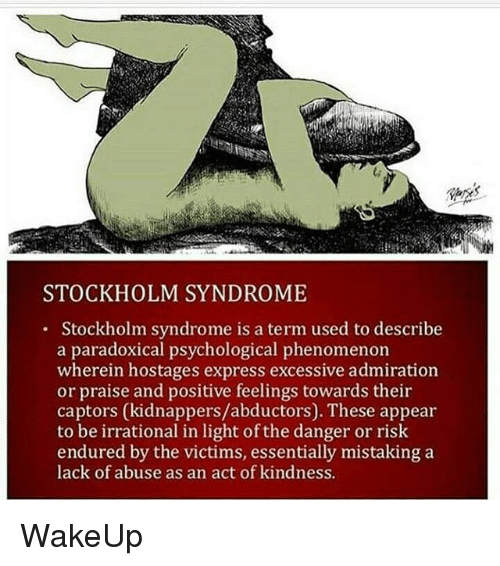
- Grieving for the little girl you failed to become because you had to take care of your mother early, and sometimes the whole family.
How to communicate with your mother in recovery
At this stage of healing, it is important to explore ways to manage your relationships and maintain the ability to behave in a healthy way. You have changed, but your mother has not.
McBride argues that in full blown narcissistic personality disorder there is little chance of effective treatment or change. The desire to change is important here, and narcissistic clients, when contacting a therapist, try to quickly find answers to questions about how to interact with other people. They do not assume that the problem may be in themselves, and quickly leave, believing that something is wrong with their therapist.
The narcissistic mother can be too toxic, so it is important for the daughter to make the decision to break contact with the mother during recovery.
Others may not understand this decision, but you are making it for your mental health. If the mother is unable to change and you are constantly attacked and insulted by her, it is important to understand that cutting off contact with her is the healthier solution.
Due to the rarer communication, your contact will become polite. It is important not to expect anything from the mother, then you will experience less disappointment. McBride elaborates that this schema works best after you complete the healing process by accepting your mother's limitations and truly separating from her.
How to forgive your mother and is it necessary?
You do not have to wait for your mother's approval by moving away from her during therapy. If she does not leave you alone, you will have to learn to set personal boundaries. “Be clear about what you will and will not do,” McBride writes.
Many people are afraid to declare their boundaries because they worry about the feelings of others.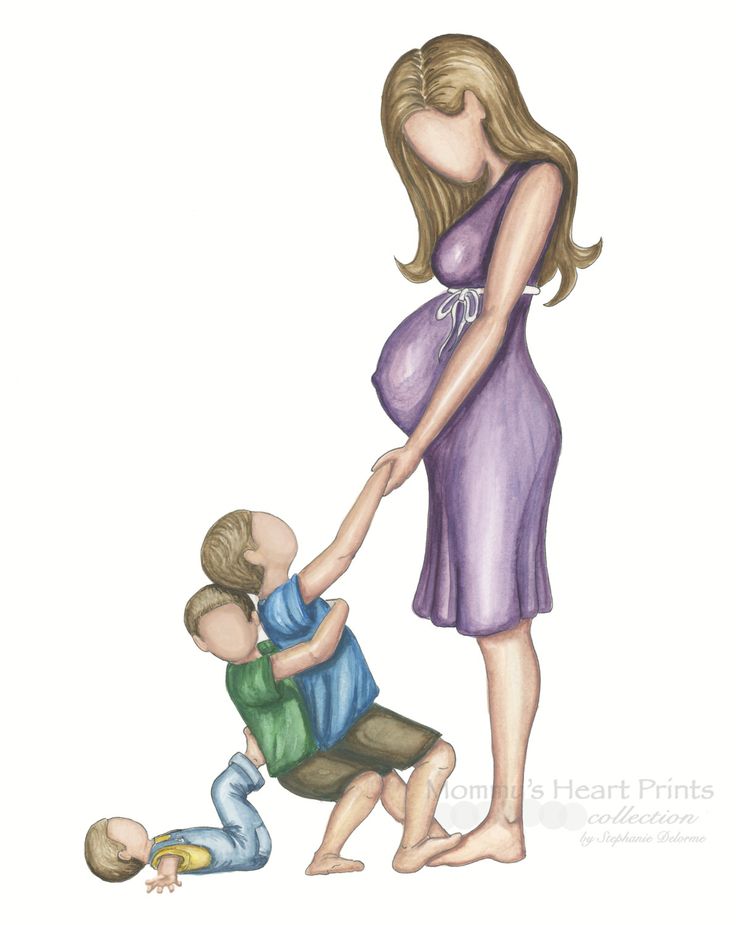 Daughters are also often afraid to install them because mothers might get angry. This fear is very real, as narcissists often cut people out of their lives.
Daughters are also often afraid to install them because mothers might get angry. This fear is very real, as narcissists often cut people out of their lives.
It is important to understand that the mother has already left you emotionally, there is not much she can do to harm you on a similar scale. come to you for dinner on Sundays. I need to be alone and I won't call you. When I'm done, I'll let you know. You don't need to call me for a while unless absolutely necessary. I'm not angry, and all this has nothing to do with you. It's just what I need right now." The mother may ask if everything is all right with you, and you can emphasize that everything is fine with you and you are not angry with her.
It happens that the mother keeps calling, coming to your house, manipulating. “Your task is to keep the boundaries and not react after you have informed her about it. She rings the doorbell, you don't open it. She calls on the phone, you don't pick up. She speaks to you, you once again confirm the seriousness of your intentions. How she handles this situation is her problem, not yours. You are not responsible for her feelings. You can act kind and gently remind her that you will start communicating with her again when you are able to do so.
How she handles this situation is her problem, not yours. You are not responsible for her feelings. You can act kind and gently remind her that you will start communicating with her again when you are able to do so.
Many are taught from childhood that good girls forgive and forget insults. We are expected to forgive everyone who offends us, because it is right. McBride emphasizes: “Forgiveness has a positive charge and helps in healing if we see that the person did not wish us harm. However, trying to deny the pain we have experienced will not do any good. Moreover, by refusing to admit that we have been harmed and to understand that a person may well do it again (intentionally or not), we put ourselves at risk.
Many misunderstand forgiveness as an excuse for the behavior that harmed us. As if nothing terrible had happened. McBride recommends forgiving only those who are ready to accept responsibility - after the person has admitted his wrong, realized it and truly repented. The author of Good Enough advises letting go of the situation internally, which will definitely do you good: “Forgiveness comes when you live these feelings in order to move on and live your life.”
The author of Good Enough advises letting go of the situation internally, which will definitely do you good: “Forgiveness comes when you live these feelings in order to move on and live your life.”
Illustrations: Shutterstock (Taty Vovchek)
Narcissistic mother
“Mom is not sacred!”. Let's put the moral and moral aspects aside for now. Anyone who wants to, can raise her to the saints, no problem. In fact, it's not about that now.
The topic of this article will undoubtedly cause mental dissonance in many, although the content of judgments and emotional experiences will certainly differ - they usually depend on what kind of experience in relations with one's own mother a person experienced in early childhood and continues to live at present, but I am sure that no one remains indifferent.
The eminent British pediatrician and psychoanalyst Donald Winnicott argued that a mother should be good enough .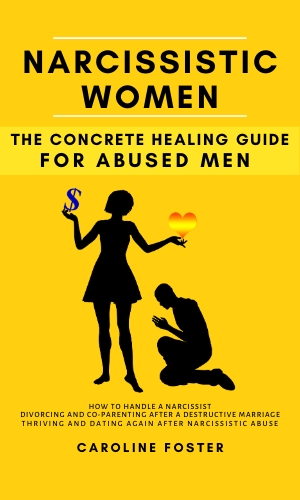 This term has taken its rightful place in psychoanalysis in the study of early object relations. The main idea here is that a good enough mother does not perceive her motherhood as hard work, doing everything to the smallest detail in strict accordance with the instructions for caring for babies she read and tries to do them flawlessly. In fact, a good enough mother lives her motherhood as her own unique life experience. She has maternal intuition, which, like an inner beacon, guides her - this is sincere and unconditional love for her child, an unquenchable desire to help him grow, develop and create a unique self, a harmonious, whole and mentally healthy personality. A good enough mother does everything in her power for the good of her child. She becomes a caring "mother-environment", providing the child with stability, stability and a sense of safe "entry into life", into the outside world. At the same time, she is not afraid to make a mistake and is aware that they are possible, because ideal mothers do not exist.
This term has taken its rightful place in psychoanalysis in the study of early object relations. The main idea here is that a good enough mother does not perceive her motherhood as hard work, doing everything to the smallest detail in strict accordance with the instructions for caring for babies she read and tries to do them flawlessly. In fact, a good enough mother lives her motherhood as her own unique life experience. She has maternal intuition, which, like an inner beacon, guides her - this is sincere and unconditional love for her child, an unquenchable desire to help him grow, develop and create a unique self, a harmonious, whole and mentally healthy personality. A good enough mother does everything in her power for the good of her child. She becomes a caring "mother-environment", providing the child with stability, stability and a sense of safe "entry into life", into the outside world. At the same time, she is not afraid to make a mistake and is aware that they are possible, because ideal mothers do not exist. It is the unconditional love for the child that helps her to always taxi on the straight road and do the right thing for the most part, and the main thing in this is to trust herself, her own feelings and maternal intuition; not to some numerous books, manuals on education and advice from others, but to myself. Because she knows that she loves her child and is ready to surround him with her warmth and care.
It is the unconditional love for the child that helps her to always taxi on the straight road and do the right thing for the most part, and the main thing in this is to trust herself, her own feelings and maternal intuition; not to some numerous books, manuals on education and advice from others, but to myself. Because she knows that she loves her child and is ready to surround him with her warmth and care.
There can be nothing more valuable than unconditional maternal love and care for a child.
Returning to the topic of this article, it should be borne in mind that motherhood proceeds differently for all women. It is important to understand that not a mother becomes a person, but a person becomes or can become a mother. A woman always lives motherhood, first of all, taking into account what she is like as a person.
What is this woman who became a mother? There is a huge variety of options here, up to severe mental pathologies, when a baby born into the world is rejected by his own mother, dies of hunger, or is found in a trash can, and today, alas, this is not uncommon.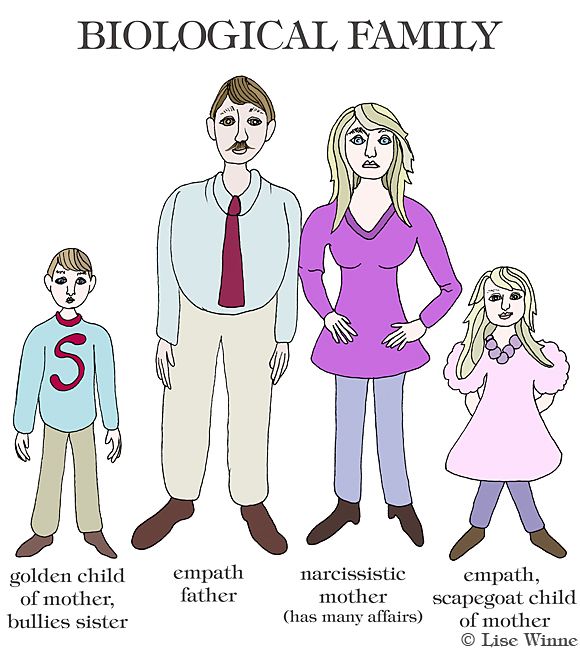 As a psychotherapist, I know how many perversions exist, often carried by narcissistic mothers, and the slogan “Mom is sacred!” in fact, it has no basis, and sometimes only causes great irritation, because most psychologists and psychotherapists, in their hard work, make great efforts to ensure that healthy, good enough motherhood finally becomes the norm - not holiness, not a feat, but simply the norm.
As a psychotherapist, I know how many perversions exist, often carried by narcissistic mothers, and the slogan “Mom is sacred!” in fact, it has no basis, and sometimes only causes great irritation, because most psychologists and psychotherapists, in their hard work, make great efforts to ensure that healthy, good enough motherhood finally becomes the norm - not holiness, not a feat, but simply the norm.
Below we will talk about one very veiled and dangerous pathology - malignant maternal narcissism. We will try to understand what happens when a woman suffering from pathological narcissism (narcissistic personality disorder) becomes a mother. A narcissistic woman, like a psycho or sociopath, never really becomes a mother because she sincerely wants to see and know her child, wants to know herself as a mother, is ready to live the experience of motherhood filled with love, care and creativity. No. For her, the birth of a child is either an accident (she gave birth on an aerial basis), or some kind of consciously planned goal.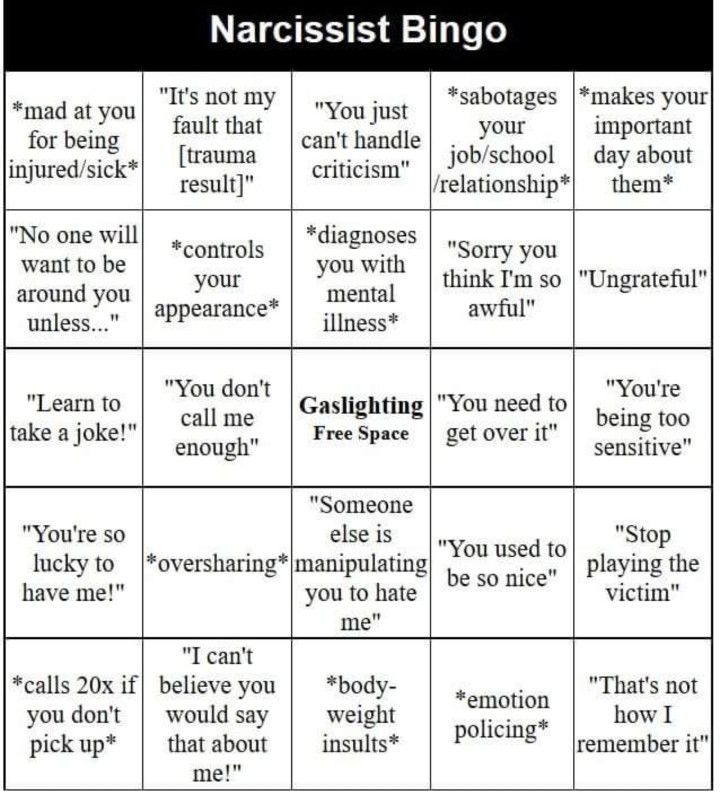 The narcissistic mother needs the child to achieve this goal, his birth is planned for the solution of a certain task. A baby born from the first minute of his life, one way or another, must not only correspond to the grandiose image that his mother is, but he must exalt and complement this image even more, decorate it with himself, and at the same time not forget who he is " vicar" of the Lord on earth - his narcissistic mother.
The narcissistic mother needs the child to achieve this goal, his birth is planned for the solution of a certain task. A baby born from the first minute of his life, one way or another, must not only correspond to the grandiose image that his mother is, but he must exalt and complement this image even more, decorate it with himself, and at the same time not forget who he is " vicar" of the Lord on earth - his narcissistic mother.
Often in sessions with patients, one can hear that the mother seems to hate them, although she did a lot of good for them, for which they are sincerely grateful and grateful to her. I'll tell you one thing that may shock you a lot: most likely, a mother suffering from narcissistic personality disorder actually hates you. Maybe unconsciously, maybe against her will, but the nature of her feelings and attitude towards her own child, unfortunately, does not change because of this. The fact is that, according to the structure of her personality, a narcissistic mother needs power, total control, influence and manipulation of the life of her child. Her fragile self-esteem rests on these pathological aspirations; without them, she experiences an unbearable feeling of emptiness, inner brokenness and worthlessness. For such mothers, the child is the most convenient and uncomplaining object that can be easily used for such malignant self-affirmation, since narcissistic mothers do not see their children as separate individuals, but perceive them only as their extension, property, or, in analytical terms, narcissistic extension . In this case, even the age of the children is not taken into account.
Her fragile self-esteem rests on these pathological aspirations; without them, she experiences an unbearable feeling of emptiness, inner brokenness and worthlessness. For such mothers, the child is the most convenient and uncomplaining object that can be easily used for such malignant self-affirmation, since narcissistic mothers do not see their children as separate individuals, but perceive them only as their extension, property, or, in analytical terms, narcissistic extension . In this case, even the age of the children is not taken into account.
A mother-narcissist has an extremely toxic peremptory attitude: "I gave birth to you and I have every right to your life, no matter how old you are." Functionally, such mothers can present themselves as super-caring, sacrificial, deeply devoted to the child and family, so that no one has even a shred of doubt about the pathological grandiosity of their motherhood. External presentation is extremely important for them, but we emphasize once again that they raise children solely for a specific purpose, considering the birth of a child as a “business project” that must someday justify itself.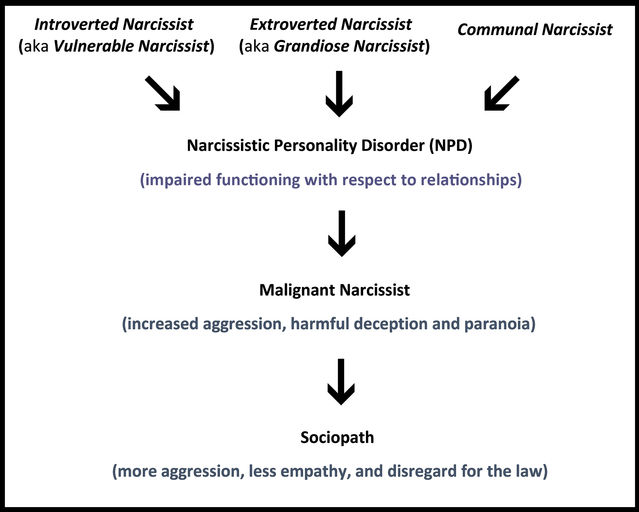 In fact, the child is called upon to become a tool, or a human function, to satisfy the mother's unhealthy ambitions, to turn into a support for her deformed, sick Ego.
In fact, the child is called upon to become a tool, or a human function, to satisfy the mother's unhealthy ambitions, to turn into a support for her deformed, sick Ego.
Another hallmark of narcissistic mothers is that children must earn their love, or in case of disobedience or inconsistency with her expectations, they will face obvious rejection, humiliation and contempt from the mother. Unfortunately, very often one has to observe how a mother cruelly, sadistically punishes her child, and he, naive and gullible, still reaches out to her, not believing his eyes and feelings, trying to beg for love and maternal warmth from his infantile parent. Narcissistic mothers leave deep ugly scars in the souls of their children, severely injure their immature psyche, cripple their fate, make people unhappy and suffering for the rest of their lives.
The narcissistic mother begins to train her children from early childhood: just by her glance, the movement of her eyebrows, the tone of her voice or the manipulative silence, the child begins to become emotionally fixed on her desires and expectations, which for his psyche is tantamount to a rejection of himself.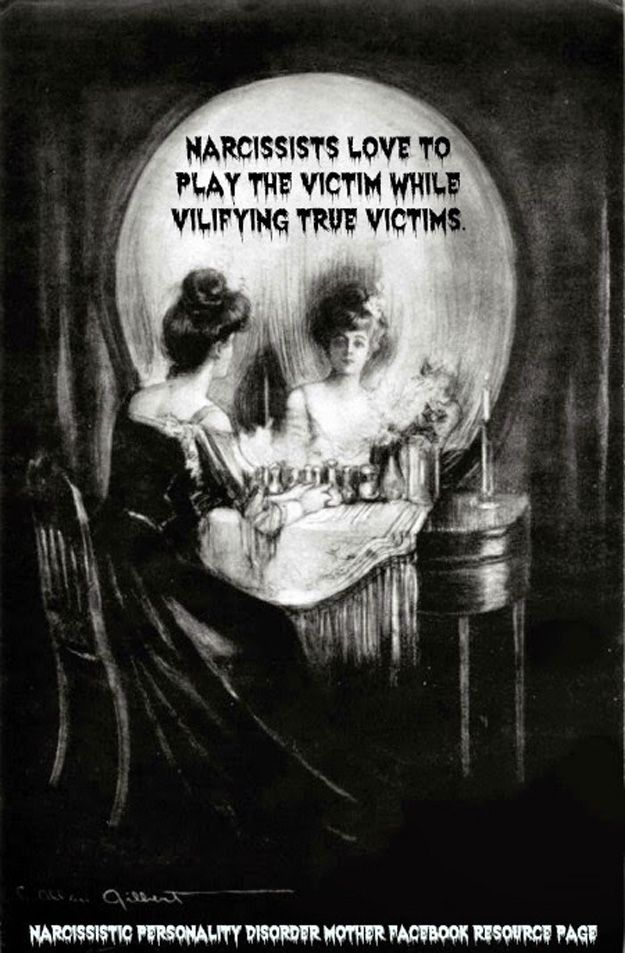 Children are also prohibited from having a healthy critical attitude towards their mother, which is vital for successful completion of the separation-individuation process . Moreover, with mother's milk, the child is instilled with the idea that the narcissistic mother is almost ideal, that all good things happen exclusively thanks to her, and all bad things come from the nature of the child. Over time, children begin to love their mother with the unconditional and mature love of a parent and an adult, while she, a mother, an adult, loves her children with a capricious, infantile love only on condition of their complete obedience and submission, for their compliance with what was invented and imposed on her for them to the image. If I brought you into the world, then be the way I want - like me and comfortable. Often, a child, more often an older one, is assigned parental functions in relation to his own mother. For example, to replace her in household chores or in caring for younger children, as well as to protect the mother, always be on her side and play the role of arbiter in her relationship with her husband.
Children are also prohibited from having a healthy critical attitude towards their mother, which is vital for successful completion of the separation-individuation process . Moreover, with mother's milk, the child is instilled with the idea that the narcissistic mother is almost ideal, that all good things happen exclusively thanks to her, and all bad things come from the nature of the child. Over time, children begin to love their mother with the unconditional and mature love of a parent and an adult, while she, a mother, an adult, loves her children with a capricious, infantile love only on condition of their complete obedience and submission, for their compliance with what was invented and imposed on her for them to the image. If I brought you into the world, then be the way I want - like me and comfortable. Often, a child, more often an older one, is assigned parental functions in relation to his own mother. For example, to replace her in household chores or in caring for younger children, as well as to protect the mother, always be on her side and play the role of arbiter in her relationship with her husband. Often the mother herself provokes such scenes in order to make sure of the loyalty of her children, and they will have a very hard time if they do not take her side, do not act in accordance with her manipulations and sick fantasy. The little man becomes an appendage of his own mother, as if he does not have his own soul and feelings, he is forced to play long and skillfully according to her cruel rules until he remains completely dependent on her.
Often the mother herself provokes such scenes in order to make sure of the loyalty of her children, and they will have a very hard time if they do not take her side, do not act in accordance with her manipulations and sick fantasy. The little man becomes an appendage of his own mother, as if he does not have his own soul and feelings, he is forced to play long and skillfully according to her cruel rules until he remains completely dependent on her.
When the children grow up, the narcissist mother, using insidious psychological processing, achieves the formation of a feeling of guilt in front of her and, with the help of emotional extortion and blackmail, persistently tries to keep them in a strong web of dependence, from which it is almost impossible to get out without the help of a psychotherapist. Over time, it becomes clear that no matter how hard the children try, this will never be enough for the mother, since her inner emptiness and spiritual hole can only be filled with the love and care of her own mother, and this cannot be the task of the child.
And what happens when grown-up children, tired of being the source of her narcissistic nourishment, begin to rebel, no longer react to maternal manipulations, return her negative projections, strive to build their own lives independently and independently of their mother? First of all, there is an intersection of interests, and there is an inevitable collapse of mother's hopes and expectations, the collapse of her grandiose fantasy of creating a large family in which she is the only ruler and manager. It is this collapse, which is, in fact, a narcissistic collapse, that becomes the soil on which the mother's unconscious hatred of her own child begins to grow, "destroying" her mother's life with her independence and independence.
Mothers whose attitude towards their loved ones fluctuates between poles love-hate, idealize-devalue rushing all their lives from the image of a super-positive virtue to the image of a cruel accuser, completely denying the presence of negative traits in themselves, women whose love must be earned, and to prove their love for them without fail, they themselves are eternal capricious children, whose true nature and feelings were once rejected - most often by their own mothers - who do not know themselves and sincerely believe that the inflated soap bubble of their dignity is and there are they.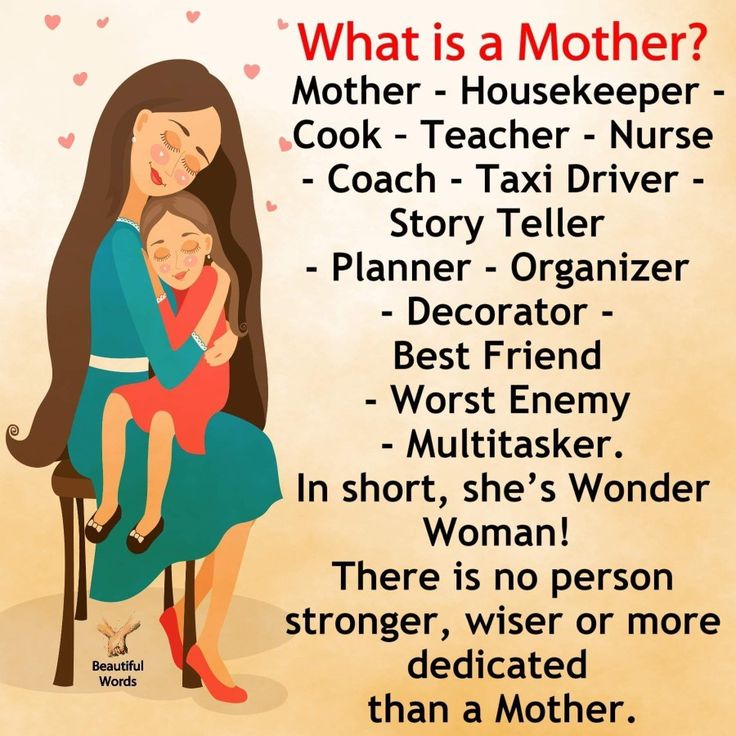 Undoubtedly, they make a lot of effort and do a great job in their quest to live up to the grandiose image invented for themselves. They do not know how to just be, just live, just love, just be happy and self-sufficient. Coexisting with such a person is, in fact, an extremely difficult test, emotionally and physically draining, because no one wants to live in fear next to a toxic person whose ego is fragile, like an eggshell, and whose attitude towards you can change at any moment. depending on the mood.
Undoubtedly, they make a lot of effort and do a great job in their quest to live up to the grandiose image invented for themselves. They do not know how to just be, just live, just love, just be happy and self-sufficient. Coexisting with such a person is, in fact, an extremely difficult test, emotionally and physically draining, because no one wants to live in fear next to a toxic person whose ego is fragile, like an eggshell, and whose attitude towards you can change at any moment. depending on the mood.
Now you may have a better understanding of the processes that inevitably lead to a split in the child's psyche in his relationship with his own toxic mother. A mature, self-sufficient, formed personality, whose structure is based on a truly good beginning, will never and under no circumstances change itself, will not openly express anger and hatred, humiliate, reject and manipulate, will not hysteria, especially if sincerely and unconditionally loves your child. Of course, with such a psychological burden, your mother really had and is having a hard time. We believe that she did the best she could, and certainly deserves respect and sympathy for her life path. However, one does not exclude the other. No one has the right to arbitrariness, and any mother is primarily a person, and such personality traits as lack of tolerance, empathy, vindictiveness and vindictiveness, as well as the endless exhausting pursuit of imaginary self-affirmation at the expense of others, sooner or later force people subject to them lose loved ones, break off relationships with friends and colleagues. However, they always blame life, fate and others for this, but they never even try to find reasons in themselves. Until a person realizes that he has the right to psychological and spiritual work exclusively in relation to himself, he will not be able to develop normally. This applies to your mother, but also to you. A small child cannot be responsible for the fate of an adult. And to decide how viable and justified the model of her relationship with loved ones and with society, and whether she needs to change anything in herself, your mother must come herself.
We believe that she did the best she could, and certainly deserves respect and sympathy for her life path. However, one does not exclude the other. No one has the right to arbitrariness, and any mother is primarily a person, and such personality traits as lack of tolerance, empathy, vindictiveness and vindictiveness, as well as the endless exhausting pursuit of imaginary self-affirmation at the expense of others, sooner or later force people subject to them lose loved ones, break off relationships with friends and colleagues. However, they always blame life, fate and others for this, but they never even try to find reasons in themselves. Until a person realizes that he has the right to psychological and spiritual work exclusively in relation to himself, he will not be able to develop normally. This applies to your mother, but also to you. A small child cannot be responsible for the fate of an adult. And to decide how viable and justified the model of her relationship with loved ones and with society, and whether she needs to change anything in herself, your mother must come herself.
In the meantime, there's nothing to be done. It is necessary to learn to give a tough rebuff at the first slightest manifestations of emotional and physical abuse from the narcissistic mother. Dissatisfaction, disproportionate to the situation, inadequate outbursts of anger, insults, refusal to honestly and equally discuss issues that concern you or talk about them, placing a child in the position of a victim, sarcastic comments about your tastes and views, attempts to humiliate you by comparing you with others, total control over your thoughts, actions and feelings will always encourage you to defend your boundaries and protect the psyche from destruction. The formula for adult freedom in relation to parents is simple: they have the right to want, but you have the right to refuse. They have the right to be offended and react to you as they please, and you have the right to respond to their reaction as you see fit, or not to respond at all.
Don't hesitate to take a break from your toxic mother or even end your relationship with her if you think it's necessary to restore your mental and physical health. Protect yourself from stress, and your mother too - it will be more honest than dooming yourself and her to eternal showdowns, because even with the closest person they should not become walks through a minefield.
Protect yourself from stress, and your mother too - it will be more honest than dooming yourself and her to eternal showdowns, because even with the closest person they should not become walks through a minefield.
Gratitude of children for the life given to them is present in those families where parents gave life to a child consciously and from the very moment of birth filled it with unconditional love, care, warmth of mother’s hugs, understanding and accepting the fact that a free person came into the world, to whom they will help to get stronger and develop, and then he will live his own life and make his own choices, and his parents will live their own.
Healthy relationships between parents and children should be built on trust and mutual understanding: at the right time, lend a shoulder to the baby, reassure, help, or simply suggest, without imposing anything or demanding anything in return. Where there is no pressure, strict demands, intimidation, manipulation, children naturally express gratitude to their parents for the life they have been given, and not because they are obliged to do it, but because they sincerely want it, and this brings them incredible joy and inspiration.

